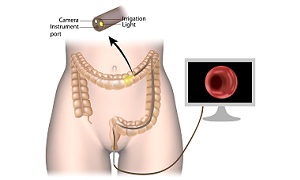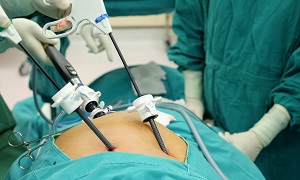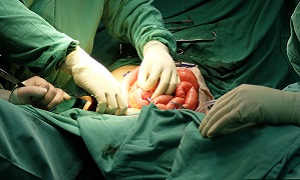Best Doctors in India for Colon Cancer treatment
Best Hospitals in India for Colon Cancer treatment
Hospital Highlights:
- Apollo Hospitals is a private healthcare group in India, with its headquarters based in Chennai. Established in 1983 by Dr. Prathap C. Reddy, the group offers a wide range of medical treatments and services across various specialties.
- It is renowned for emphasizing innovation and utilizing cutting-edge medical technologies into patient treatment.
- Known as India’s first corporate hospital, Apollo Hospitals is often credited for pioneering the private healthcare revolution in the country.
- With clinics and hospitals located all throughout India, Apollo Hospitals is a nationwide healthcare organization. Its presence can also be found in foreign countries.
- Preventive health examinations, medical and surgical treatment, and diagnostic centres are just a few of the services that the Apollo group provides.
- The group has several centres of expertise, including Cardiac Sciences, Neurosciences, Orthopedics, Emergency Care, Cancer Care, and Organ Transplantation.
- City: Chennai, India
Hospital Highlights:
- RIMC is a multi-specialty hospital in a sprawling area of 36 acres located in Chromepet, Chennai, Tamil Nadu, India.
- The facility has 450 beds including 130 critical care beds, 9 operating rooms, modern reference laboratories and radiology services, and is conveniently located near road, rail and air transportation.
- RIMC is led and managed by world-renowned physicians committed to healthcare.
- RIMC offers the broadest range of clinical care, education, and research. The hospital offers state-of-the-art technology and modern treatment facilities designed to provide health care at an affordable cost.
- Rela Institute is driven by patient needs, comfort and confidence.
- City: New Delhi, India
Hospital Highlights:
- Fortis Hospital in Shalimar Bagh is a multi-super specialty hospital that strives to provide world-class patient care by leaving no stone unturned.
- Fortis, Shalimar Bagh, with 262 beds and a 7.34-acre footprint, provides the best level of medical care through its team of doctors, nurses, technicians, and management professionals.
- City: Bengaluru, India
Hospital Highlights:
- Established in 2007, the Apollo Hospitals Bangalore is a 300-bed multispecialty hospital situated in Bannerghatta Road, Bangalore.
- Equipped with the state-of-the-art technology, it is a leading hospital dedicated to providing healthcare needs to patients with compassion and expertise.
- It is the first hospital to have completed the highest number of Robot Assisted Heart Surgeries in India.
- Over the years, it has successfully conducted some of the rarest medical procedures such as spinal angiolipoma excision, autologous chondrocyte implantations, and tibial tuberosity shift with MPSL reconstruction.
- The Apollo Hospitals Bangalore has the reputation of performing the greatest series of airway stents in the country.
- Additionally, the hospital is known for providing comprehensive treatment in specialties such as gastroenterology, urology, gynecology, oncology, colorectal surgery, etc.
- The “The Minimal Access Surgery Centre” (MASC), one of Apollo Hospitals, Bangalore’s premier Centres of Excellence, is devoted to the use of minimally invasive surgical procedures.
- In 2013, THE WEEK-A C Nielsen, Best Hospital Survey ranked Apollo Hospitals Bangalore as the 2nd best multi-speciality hospital in Bangalore.
- City: Mumbai, India
Hospital Highlights:
- Gleneagles Global Hospital The 450-bed facility comprises of 17-stories, housing state-of-the-art infrastructure, and advanced medical care facilities.
- The hospital offers end-to-end clinical, surgical, and diagnostic services. It is equipped with a team of eminent medical professionals aided by qualified nurses and medical staff
- The Hospital offers advanced Endoscopic procedures, Hepatobiliary and Liver Surgeries, Surgical and Medical Gastroenterology, Bariatric Surgery, and Robotic surgery.
- The hospital is a center of excellence for Orthopedics, Joint Replacement, Knee Replacement, and Hip Replacement surgery.
- City: Hyderabad, India
Hospital Highlights:
- CARE Hospitals were established in the year 2000, by CARE Group.
- The multispecialty hospital has 435 beds, including 120 critical care beds, with an annual inflow of 180000 outpatients and 16,000 in-patients.
- The hospital provides specialty medical services in Cardiology, Cardiothoracic Surgery, Pediatric Cardiology, Pediatric Cardiothoracic Surgery, Neurology, Neurosurgery, Nephrology, and Urology.
- The hospital has the first dual source, 128 slice CT scanner (for high precision cardiac imaging) – the first of its kind in south India.
- The hospital offers a wide range of accommodation facilities for the convenience of its varied patient base, ranging from general wards to super deluxe rooms.
- City: Mumbai, India
Hospital Highlights:
- Fortis Hospital in Mulund is a 315-bed multi-speciality tertiary care hospital with five JCI accreditations that offers a wide variety of diagnostic and treatment services. The Fortis Hospital in Mulund delivers patient-centred treatment with cutting-edge technology, highly skilled and experienced surgeons, and paramedical staff.
- This institution houses Maharashtra’s largest multi-organ transplant centre. It is also the first heart transplant centre in western India to conduct 100 or more consecutive heart transplants in under four years. It is the only hospital in the city to have multi-organ transplants and has handled the youngest patient for angioplasty. Fortis Hospital Mulund now boasts the first advanced surgical robot in central Mumbai.
- Cardiology and heart surgery, urology, nephrology, neurosciences, orthopaedics, digestive care, emergency and critical care, and maternity care are among the services provided by the hospital.
- City: New Delhi, India
Hospital Highlights:
- Manipal Hospitals, Dwarka, is a super-specialty hospital in Dwarka, New Delhi, which is a part of Manipal Hospitals Group.
- The hospital aims to provide the best treatment on par with international standards at a fraction of the cost.
- Equipped with 380 beds, the hospital is also one of the new age hospitals which are equipped fully with state-of-the-art infrastructure, cutting-edge technology as well as the latest and advanced clinical practices. The hospital also has 13 modular Operation theatres with 118 beds which are solely meant for critical care.
- The hospital comprises internationally acclaimed doctors and highly professional and experienced hospital and medical staff who are able to provide preventive, therapeutic, and diagnostic services all under one roof.
- City: Chennai, India
Hospital Highlights:
- Located in Chennai, India, MGM Healthcare is a top multispecialty hospital that provides all medical services under one roof.
- Since its founding in 2019, MGM Healthcare has quickly become a leading national referral centre, creating several innovative flagship initiatives.
- MGM Healthcare combines next-generation medical and digital technologies to provide better patient results.
- With 12 centres of excellence, more than 400 inpatient beds, 100 intensive care unit beds, and 24/7 emergency care, MGM Healthcare leaves no chance in redefining the patient experience in Chennai.
- MGM Healthcare boasts 250+ expert doctors across 30+ departments, including Cardiology, Pulmonology, Neurology, Obstetrics & Gynaecology, and more.
- They house 12 specialized Centres of Excellence, including Neurosciences, Orthopaedics, and Multi-Organ Transplantation.
- Their team of doctors, nurses, and paramedics works together to give every patient individualized treatment.
Hospital Highlights:
- Lilavati Hospital & Research Centre is India’s premier multi-speciality tertiary care hospital and has been recognised as a global medical excellence centre.
- Lilavati Hospital & Research Centre has built an unrivalled level of trust with its patients over the years, thanks to a solid foundation that comprises cutting-edge facilities, the best medical competence, research, education, and charity endeavours.
- The hospital is quite proud of the fact that it now serves patients from all kinds of backgrounds, not just from the United States but from all around the world.
- The hospital has a total of 323 beds, one of the largest Intensive Care Units (ICUs), 12 Operation Theatres with modern amenities, over 300 consultants, and almost 1,800 personnel.
COLON CANCER
Cancer is one of the diseases that involve abnormal growth of cells. This is an uncontrollable disease that can even affect other parts of the body. One such type of cancer is colon cancer, which affects the digestive tract. Cancer starts from the large intestine and reaches the colon, which is the last part of the digestive system. The disease generally affects the ones who are older in age, but the disease is not age bound and affects the person of any age.
Colon cancer, which is also known as colorectal cancer is the one that starts as a non-cancerous cluster of cells in the initial stage. These clusters form inside the colon and are known as polyps. As time passes, some of the polyps turn cancerous, which can lead to colon cancer. Colon cancer is a type of cancer that can be controlled. One can get treated by various methods like drug treatments, surgery, and radiation therapy.
Cause of Colon Cancer
For prevention one should be aware of the causes of the disease. Though doctors are not sure what are the main causes behind the spread of the colon cancer, the disease starts when the healthy cells in the colon change their DNA (mutation).
In general, the cells are healthy, they grow and divide, to keep the functioning of the body in order. But as the DNA of the cells gets damaged, it can become cancerous. This does not stop the division of cells, instead, they continue to grow and form a tumor. This cancerous cell, with time, grows and can affect other normal tissues. It can further affect the other parts of the body.
Symptoms of Colon Cancer
Some of the symptoms that can help you know if you are suffering from colon cancer are as follows:
- One of the symptoms of cancer is the change in bowel habits. The patient suffering from colon cancer may experience constipation or diarrhea. It can even lead to a change in the consistency of the stools of the patient.
- One can experience bleeding in stools or in the rectum.
- A patient suffering from colon cancer will undergo never-ending abdominal discomfort. These include cramps, gas, or pain.
- One can undergo an unexpected weight loss.
- Weakness and fatigue are the symptoms that can be an alarm for you to check yourself.
The person undergoing these symptoms should see the doctor as soon as possible as these can be the symptoms about the start of the colon cancer. Also, the symptoms may vary according to the size and location of cancer in the patient’s large intestine.
Diagnosis of Colon Cancer
Screening
For healthy people with no possible signs & symptoms, doctors recommend some screening tests to look for the non-cancerous colon polyps and signs of colon cancer. Figuring out the disease in its initial stage indicates higher chances of favorable treatment and a cure. Screening reduces your risk of dying because of colon cancer. Most of the people with a risk of colon cancer undergo screening around the age of 50 years. There are myriad screening options, each with their own drawbacks and benefits. When the doctor performs colonoscopy for screening, it is possible to remove the polyps before they turn into cancer.
Colonoscopy
Colonoscopy involves using a long, slender & flexible tube attached to a video camera and monitor. It helps the doctor to view the rectum and colon. Your doctor will pass surgical tools through the tube for collecting tissue samples, if he or she finds any suspicious areas. Next, the doctor will perform analysis and remove the polyps.
Blood tests
Treatment options for Colon Cancer
Surgery
Surgery for early-stage cancer
Your doctor will perform a minimally invasive approach to surgery, if your colon cancer is at its initial stages.
- Polypectomy– If your cancer is in its early stage, localized, contained with a polyp, and small, then your doctor will remove it completely in a procedure called colonoscopy.
- Endoscopic mucosal resection – Your doctor may remove the larger polyps during colonoscopy with the help of special tools. He or she may also remove the inner lining of the colon through endoscopic mucosal resection.
- Laparoscopic surgery –It is a minimally invasive surgery and removes polyps that colonoscopy doesn’t remove. Your surgeon will give numerous small incisions in the abdominal wall and insert the instruments with cameras to display the colon on your monitor during the procedure.
Surgery for advanced-stage cancer
- Partial colectomy– Your doctor will remove a part of your colon containing cancer along with a margin of the normal tissue during the procedure.
- Ostomy- This procedure involves creating an opening in the abdominal wall from a portion of the bowel. It held the elimination of stools in a bag that fits over the opening. The procedure is temporary sometimes to allow the colon or rectum to heal. However, it may be permanent in some cases.
- Lymph node removal- Your surgeon will remove the nearby lymph nodes during the surgery.
Surgery for very advanced cancer
Chemotherapy
Radiation therapy
Targeted drug therapy
Immunotherapy

Palliative care




















